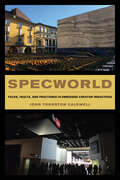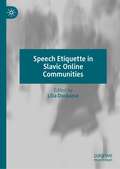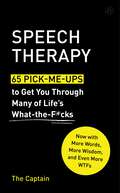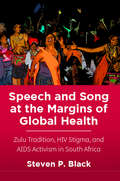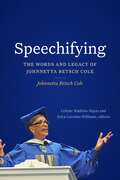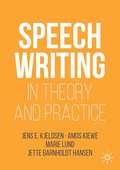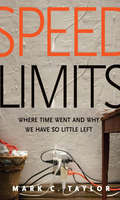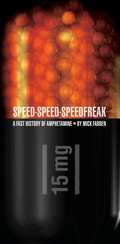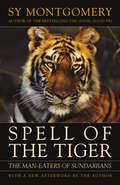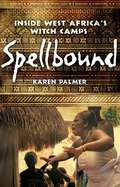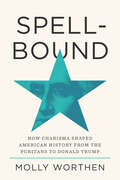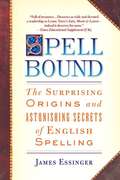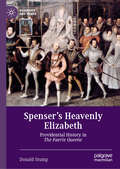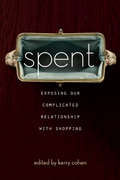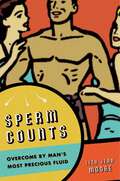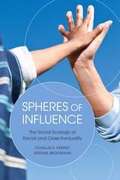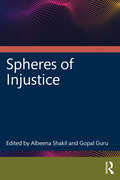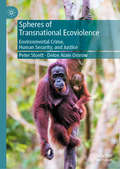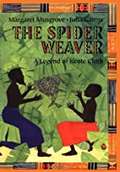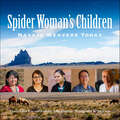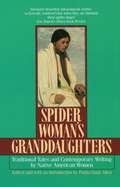- Table View
- List View
Specworld: Folds, Faults, and Fractures in Embedded Creator Industries
by John Thornton CaldwellJohn Thornton Caldwell’s landmark Specworld demonstrates how twenty-first-century media industries monetize and industrialize creative labor at all levels of production. Through illuminating case studies and rich ethnography of colliding social-media and filmmaking practices, Caldwell takes readers into the world of production workshopping and trade mentoring to show media production as an untidy social construct rather than a unified, stable practice. This messy complex system, he argues, is full of discrete yet interconnected parts that include legacy production companies, marketers and influencers, aspirant online producers, data miners, financiers, talent agencies, and more. Caldwell peels away the layers of these embedded production systems to examine the folds, fault lines, and fractures that underlie a risky, high-pressure, and often exploitative industry. With insights on the ethical and human predicament faced by industry hopefuls and crossover creators seeking professional careers, Caldwell offers new interpretive frames and research methods that allow readers to better see the hidden and multifaceted financial logics and forms of labor embedded in contemporary media production industries.
Speech Communities
by Marcyliena H. MorganWhat makes a speech community? How do they evolve? How are speech communities identified? Speech communities are central to our understanding of how language and interactions occur in societies around the world and in this book readers will find an overview of the main concepts and critical arguments surrounding how language and communication styles distinguish and identify groups. Speech communities are not organized around linguistic facts but around people who want to share their opinions and identities; the language we use constructs, represents and embodies meaningful participation in society. This book focuses on a range of speech communities, including those that have developed from an increasing technological world where migration and global interactions are common. Essential reading for graduate students and researchers in linguistic anthropology, sociolinguistics and applied linguistics.
Speech Etiquette in Slavic Online Communities
by Lilia DuskaevaThis edited book focuses on speech etiquette, examining the rules that govern communication in various online communities: professional, female, and ethnospecific. The contributors analyze online communication in the Slavic languages Russian, Slovak, Polish, and Belarusian, showing how the concept of speech etiquette differs from the concept of politeness, although both reflect the relationship between people in interaction. Online communities are united on the basis of common informative or phatic illocutions among their participants, and their speech etiquette is manifested in stable forms of conducting discussions – stimulating and responding. Each group has its own ideas of unacceptable speech behavior and approaches to sanitation, and the rules of speech etiquette in each group determine the degree of rapport and distancing between the participants in discourse. The chapters in this book explore how rapport and distance are established through acts such as showing attention to the addressee and increasing his or her communicative status; reducing or increasing the illocutionary power of evaluations and motivations; and evaluating one’s own or someone else’s speech. The volume will be of interest to researchers studying online communication in such diverse fields as linguistics, sociology, anthropology, programming, and media studies.
Speech Therapy: 65 Pick-Me-Ups to Get You Through Many of Life's What-the-F*cks
by The CaptainAn expanded edition of the bestselling self-published self-help book, featuring 13 exclusive essays from creator and self-proclaimed instigator Kyle Creek, aka “The Captain.” We all deal with bad days and hard times that leave us feeling frustrated, angry, and defeated. Bestselling author and self-proclaimed instigator “The Captain” is the funny and wise friend we need most in times like these: someone who tells it like it is and gives us the tough-love advice we need to get back up and meet our challenges head on.In Speech Therapy, The Captain shares witty wisdom on a variety of difficult yet common situations, such as:Getting caught in a compromising situationExperiencing co-parenting conundrumsDealing with a bad roommateHitting a creative wallRegretting parting ways with someoneBecoming stranded on a deserted islandNo matter the issue, you’ll find sage advice and insightful commentary to help you survive and overcome an ordeal before it ruins your mood, your day, or years of your life.For those familiar with The Captain’s original self-published version, get ready for more wisdom and even more WTFs—this expanded edition features 13 brand new, never-before-seen essays and illustrations. With humor that both cuts and heals, this wise collection of life lessons is the relatable literary therapy that we all need from time to time.Speech Therapy includes 65-75 black and white illustrations.
Speech and Song at the Margins of Global Health: Zulu Tradition, HIV Stigma, and AIDS Activism in South Africa
by Steven P. BlackSpeech and Song at the Margins of Global Health tells the story of a unique Zulu gospel choir comprised of people living with HIV in South Africa, and how they maintained healthy, productive lives amid globalized inequality, international aid, and the stigma that often comes with having HIV. By singing, joking, and narrating about HIV in Zulu, the performers in the choir were able to engage with international audiences, connect with global health professionals, and also maintain traditional familial respect through the prism of performance. The focus on gospel singing in the narrative provides a holistic viewpoint on life with HIV in the later years of the pandemic, and the author’s musical engagement led to fieldwork in participants’ homes and communities, including the larger stigmatized community of infected individuals. This viewpoint suggests overlooked ways that aid recipients contribute to global health in support, counseling, and activism, as the performers set up instruments, waited around in hotel lobbies, and struck up conversations with passersby and audience members. The story of the choir reveals the complexity and inequities of global health interventions, but also the positive impact of those interventions in the crafting of community.
Speechifying: The Words and Legacy of Johnnetta Betsch Cole
by Johnnetta Betsch ColeSpeechifying collects the most important speeches of Dr. Johnnetta Betsch Cole—noted Black feminist anthropologist, the first Black female president of Spelman College, former director of the Smithsonian Institution's National Museum of African Art, and former chair and president of the National Council of Negro Women. A powerful and eloquent orator, Dr. Cole demonstrates her commitment to the success of historically Black colleges and universities, her ideas about the central importance of diversity and inclusion in higher education, the impact of growing up in the segregated South on her life and activism, and her belief in public service. Drawing on a range of Black thinkers, writers, and artists as well as biblical scripture and spirituals, her speeches give voice to the most urgent and polarizing issues of our time while inspiring transformational leadership and change. Speechifying also includes interviews with Dr. Cole that highlight her perspective as a Black feminist, her dedication to public speaking and “speechifying” in the tradition of the Black church, and the impact that her leadership and mentorship have had on generations of Black feminist scholars.
Speechwriting in Theory and Practice (Rhetoric, Politics and Society)
by Jens E. Kjeldsen Amos Kiewe Marie Lund Jette Barnholdt Hansen (Deceased)This book provides students, researchers, and practitioners of speechwriting with a unique insight in the theory, history, and practice of speechwriting. The combination of theory and practice with case studies from the United States and Europe makes this volume the first of its kind. The book offers an overview of the existing research and theory, analysing how speeches are written in political and public life, and paying attention to three central subjects of contemporary speechwriting: convincing characterization of the speaker, writing for the ear, and appealing with words to the eye. Chapters address the ethics and the functions of speechwriting in contemporary society and also deliver general instructions for the speechwriting process. This book is recommended reading for professional speechwriters wishing to expand their knowledge of the rhetorical and theoretical underpinnings of speechwriting, and enables students and aspiring speechwriters to gain an understanding of speechwriting as a profession.
Speechwriting in Theory and Practice (Rhetoric, Politics and Society)
by Jens E. Kjeldsen Amos Kiewe Marie Lund Jette Barnholdt HansenThis book provides students, researchers, and practitioners of speechwriting with a unique insight in the theory, history, and practice of speechwriting. The combination of theory and practice with case studies from the United States and Europe makes this volume the first of its kind. The book offers an overview of the existing research and theory, analysing how speeches are written in political and public life, and paying attention to three central subjects of contemporary speechwriting: convincing characterization of the speaker, writing for the ear, and appealing with words to the eye. Chapters address the ethics and the functions of speechwriting in contemporary society and also deliver general instructions for the speechwriting process. This book is recommended reading for professional speechwriters wishing to expand their knowledge of the rhetorical and theoretical underpinnings of speechwriting, and enables students and aspiring speechwriters to gain an understanding of speechwriting as a profession.
Speed Limits: Where Time Went and Why We Have So Little Left
by Mark C. TaylorA contemplation on &“the durability of our fast-tracked, multitasked modern world . . . a stimulating cautionary report for the digital age.&”—Kirkus Reviews We live in an ever-accelerating world: faster computers, markets, food, fashion, product cycles, minds, bodies, kids, lives. When did everything start moving so fast? Why does speed seem so inevitable? Is faster always better? Drawing together developments in religion, philosophy, art, technology, fashion, and finance, Mark C. Taylor presents an original and rich account of a great paradox of our times: how the very forces and technologies that were supposed to free us by saving time and labor now trap us in a race we can never win. The faster we go, the less time we have, and the more we try to catch up, the farther behind we fall. Connecting our speed-obsession with today&’s global capitalism, he composes a grand narrative showing how commitments to economic growth and extreme competition, combined with accelerating technological innovation, have brought us close to disaster. Psychologically, environmentally, economically, and culturally, speed is taking a profound toll on our lives. By showing how the phenomenon of speed has emerged, Taylor offers us a chance to see our pace of life as the product of specific ideas, practices, and policies. It&’s not inevitable or irreversible. He courageously and movingly invites us to imagine how we might patiently work towards a more deliberative life and sustainable world. &“With panache and flashes of brilliance, Taylor, a Columbia University religion professor and cultural critic, offers a philosophically astute analysis of how time works in our era.&” —Publishers Weekly
Speed Tribes: Days and Nights with Japan's Next Generation
by Karl Taro GreenfeldReports on Japanese youth culture in the early '90's, using particular people as examples. Includes stories of Yakuza gangsters, a motorcycle gang member, a teenage thief, a porn star, a rock band, a party girl, a bar hostess, a drug-dealer, an ultra-nationalist activist, a high-school dropout, a college student, and a computer hacker.
Speed-Speed-Speedfreak
by Mick FarrenElvis Presley, the Hell's Angels, Hunter S. Thompson, Truman Capote, the Beatles, Judy Garland, Hank Williams, the Manson Family, Jack Kerouac, Johnny Cash, JFK, and Adolf Hitler. All of the above were, at one time or another, to put it bluntly, speedfreaks.Speed-Speed-Speedfreak traces the criminal and cultural use of amphetamine and its growing use through each new and destructive cycle. The book will be printed in rounded pill capsule form, like the vaunted "black beauty" of pharmaceutical history.Mick Farren is the former lead singer of The Deviants and the author of more than forty books.
Spell of the Tiger: The Man-Eaters of Sundarbans
by Sy MontgomeryFrom the author of The Soul of an Octopus and bestselling memoir The Good Good Pig, a book that earned Sy Montgomery her status as one of the most celebrated wildlife writers of our time, Spell of the Tiger brings readers to the Sundarbans, a vast tangle of mangrove swamp and tidal delta that lies between India and Bangladesh. It is the only spot on earth where tigers routinely eat people—swimming silently behind small boats at night to drag away fishermen, snatching honey collectors and woodcutters from the forest. But, unlike in other parts of Asia where tigers are rapidly being hunted to extinction, tigers in the Sundarbans are revered. With the skill of a naturalist and the spirit of a mystic, Montgomery reveals the delicate balance of Sundarbans life, explores the mix of worship and fear that offers tigers unique protection there, and unlocks some surprising answers about why people at risk of becoming prey might consider their predator a god.
Spellbound
by Karen PalmerAs I attempted to digest stories of spiritual cannibalism, of curses that could cost a student her eyesight or ignite the pages of the books she read, I knew I was not alone in my skepticism. And yet, when I caught sight of the waving arms of an industrious scarecrow, the hair on the back of my neck would stand on end. It was most palpable at night, this creepy feeling, when the moon stayed low to the horizon and the dust kicked up in the breeze, reaching out and pulling back with ghostly fingers. There was something to this place that could be felt but not seen. With these words, Karen Palmer takes us inside one of West Africa's witch camps, where hundreds of banished women struggle to survive under the watchful eye of a powerful wizard. Palmer arrived at the Gambaga witch camp with an outsider's sense of outrage, believing it was little more than a dumping ground for difficult women. Soon, however, she encountered stories she could not explain: a woman who confessed she'd attacked a girl given to her as a sacrifice; another one desperately trying to rid herself of the witchcraft she believed helped her kill dozens of people. In Spellbound, Palmer brilliantly recounts the kaleidoscope of experiences that greeted her in the remote witch camps of northern Ghana, where more than 3,000 exiled women and men live in extreme poverty, many sentenced in a ceremony hinging on the death throes of a sacrificed chicken. As she ventured deeper into Ghana's grasslands, Palmer found herself swinging between belief and disbelief. She was shown books that caught on fire for no reason and met diviners who accurately predicted the future. From the schoolteacher who believed Africa should use the power of its witches to gain wealth and prestige to the social worker who championed the rights of accused witches but also took his wife to a witch doctor, Palmer takes readers deep inside a shadowy layer of rural African society. As the sheen of the exotic wore off, Palmer saw the camp for what it was: a hidden colony of women forced to rely on food scraps from the weekly market. She witnessed the way witchcraft preyed on people's fears and resentments. Witchcraft could be a comfort in times of distress, a way of explaining a crippling drought or the inexplicable loss of a child. It was a means of predicting the unpredictable and controlling the uncontrollable. But witchcraft was also a tool for social control. In this vivid, startling work of first-person reportage, Palmer sheds light on the plight of women in a rarely seen corner of the world.
Spellbound: How Charisma Shaped American History from the Puritans to Donald Trump
by Molly WorthenWhat happens when Americans lose faith in their religious institutions—and politicians fill the void? From the Puritans to Donald Trump, this sweeping history will change your understanding of the forces that create leaders and hold their followers captive.&“Elegant and insightful, Spellbound is an important contribution to the urgent project of understanding America in our time.&”—Jon MeachamEveryone feels it. Cultural and political life in America has become unrecognizable and strange. Firebrands and would-be sages have taken the place of reasonable and responsible leaders. Nuanced debates have given way to the smug confidence of yard signs. How did we get here?In Spellbound, historian Molly Worthen argues that we will understand our present moment if we learn the story of charisma in America. From the Puritans and Andrew Jackson to Black nationalists and Donald Trump, the saga of American charisma, Worthen argues, stars figures who possess a dangerous and alluring power to move crowds. They invite followers into a cosmic drama where hopes are fulfilled and grievances are put right—and these charismatic leaders insist that they alone plot the way.The story of charisma in America reveals that when traditional religious institutions fail to deliver on their promise of a meaningful life, people will get their spiritual needs met in a warped cultural and political landscape dominated by those who appear to have the power to bring order and meaning out of chaos. Charismatic leaders address spiritual needs, offering an alternate reality where people have knowledge, power, and heroic status, whether as divinely chosen instruments of God or those who will restore national glory.Through Worthen&’s centuries-spanning historical research, Spellbound places a crucial religious lens on the cultural, economic, and political upheavals facing Americans today.
Spellbound: The Surprising Origins and Astonishing Secrets of English Spelling
by James EssingerFollowing the continued success of a wave of spelling and punctuation titles published in the past eighteen months, James Essinger's 'Spellbound' is an engagingly written, unique and comprehensive account of why the English language is riddled with words that are difficult to spell. Starting with an analysis of the first writing systems, via the origins of English spelling and how this has evolved, the book concludes with intriguing stories of how the spelling of many hard-to-spell words evolved.
Spenser’s Heavenly Elizabeth: Providential History in The Faerie Queene (Queenship and Power)
by Donald StumpThis book reveals the queen behind Edmund Spenser’s The Faerie Queene. Placing Spenser’s epic poem in the context of the tumultuous sixteenth century, Donald Stump offers a groundbreaking reading of the poem as an allegory of Elizabeth I’s life. By narrating the loves and wars of an Arthurian realm that mirrors Elizabethan England, Spenser explores the crises that shaped Elizabeth’s reign: her break with the pope to create a reformed English Church, her standoff with Mary, Queen of Scots, offensives against Irish rebels and Spanish troops, confrontations with assassins and foreign invaders, and the apocalyptic expectations of the English people in a time of national transformation. Brilliantly reconciling moral and historicist readings, this volume offers a major new interpretation of The Faerie Queene.
Spent behind the Wheel: Drivers' Labor in the Uber Economy
by Julietta Hua Kasturi RayExploring professional passenger driving and the gig economy through feminist theories of labor Are taxi drivers in today&’s era of the ride-hail app performing care work akin to domestic and household labor? So argue the authors of Spent behind the Wheel. Bringing together sociological and legal perspectives with feminist theoretical insights, Julietta Hua and Kasturi Ray examine the case study of contemporary professional passenger driving in the United States. On the one hand, they show, the rise of the gig economy has brought new attention to the industry of professional passenger driving. On the other hand, the vulnerabilities that professional drivers experience remain hidden. Drawing on interviews with drivers, labor organizers, and members of licensing commissions, as well as case law and other published resources, Hua and Ray argue that working for ride-hail companies like Uber and Lyft shares similarities with driving for taxi companies in the impact on driver lives. Lyft and Uber sell the idea of industry disruption, but in fact they entrench long-standing modes of extracting the reproductive labor of their drivers for the benefit of consumer lives. Reproductive labor—conventionally understood as feminized labor—is extracted, but masked, behind the masculinized, racialized bodies of drivers. Professional driving is thus best understood alongside domestic and other gendered service work as reproductive labors devalued and often demonetized to benefit the national economy. Spent behind the Wheel is a must for readers interested in critical studies of technological change and the gig economy, showing how drivers&’ capacities are drained for the benefit of riders, corporations, and the maintenance of the racial state.
Spent: Exposing Our Complicated Relationship with Shopping
by Kerry CohenIn Spent, editor Kerry Cohen opens the closet doors wide to tales of women's true relationships with shopping, from humorous stories of love/hate relationships with the mall to heartbreaking tales of overspending to fix relationships. With a contributor list that includes notable female writers like Emily Chenoweth, Ophira Eisenberg, Allison Amend, and Aryn Kyle, the essays each shine light on the particular impact shopping has on all of us.Whether they're cleaning out closets of loved ones, hiding a shoplifting habit, trying out extreme couponing, dividing up family possessions, or buying a brand-new car while in labor, the book's contributors vacillate between convincing themselves to spend and struggling not to. This illuminating anthology links the effects shopping has on our emotions - whether it fills us with guilt, happiness, resentment, or doubt - our self-worth, and our relationships with parents, grandparents, lovers, children, and friends.
Sperm Counts: Overcome by Man's Most Precious Fluid (Intersections #17)
by Lisa Jean Moore2007 Choice Outstanding Academic TitleWinner of the Passing the Torch Award from the Center for Lesbian and Gay StudiesIt has been called sperm, semen, seed, cum, jizz, spunk, gentlemen's relish, and splooge. But however the “tacky, opaque liquid that comes out of the penis” is described, the very act of defining “sperm” and “semen” depends on your point of view. For Lisa Jean Moore, how sperm comes to be known is based on who defines it (a scientist vs. a defense witness, for example), under what social circumstances it is found (a doctor’s office vs. a crime scene), and for what purposes it will be used (in vitro fertilization vs. DNA analysis). Examining semen historically, medically, and culturally, Sperm Counts is a penetrating exploration of its meaning and power.Using a “;follow that sperm” approach, Moore shows how representations of sperm and semen are always in flux, tracing their twisting journeys from male reproductive glands to headline news stories and presidential impeachment trials. Much like the fluid of semen itself can leak onto fabrics and into bodies, its meanings seep into our consciousness over time. Moore’s analytic lens yields intriguing observations of how sperm is “spent” and “reabsorbed” as it spurts, swims, and careens through penises, vaginas, test tubes, labs, families, cultures, and politics.Drawn from fifteen years of research, Sperm Counts examines historical and scientific documents, children's “facts of life” books, pornography, the Internet, forensic transcripts and sex worker narratives to explain how semen got so complicated. Among other things, understanding how we produce, represent, deploy and institutionalize semen-biomedically, socially and culturally-provides valuable new perspectives on the changing social position of men and the evolving meanings of masculinity. Ultimately, as Moore reveals, sperm is intimately involved in not only the physical reproduction of males and females, but in how we come to understand ourselves as men and women.
Spheres of Influence: The Social Ecology of Racial and Class Inequality
by Douglas S. Massey Stefanie BrodmannThe black-white divide has long haunted the United States as a driving force behind social inequality. Yet, the civil rights movement, the increase in immigration, and the restructuring of the economy in favor of the rich over the last several decades have begun to alter the contours of inequality. Spheres of Influence, co-authored by noted social scientists Douglas S. Massey and Stefanie Brodmann, presents a rigorous new study of the intersections of racial and class disparities today. Massey and Brodmann argue that despite the persistence of potent racial inequality, class effects are drastically transforming social stratification in America. This data-intensive volume examines the differences in access to material, symbolic, and emotional resources across major racial groups. The authors find that the effects of racial inequality are exacerbated by the class differences within racial groups. For example, when measuring family incomes solely according to race, Massey and Brodmann found that black families’ average income measured $28,400, compared to Hispanic families’ $35,200. But this gap was amplified significantly when class differences within each group were taken into account. With class factored in, inequality across blacks’ and Hispanics’ family incomes increased by a factor of almost four, with lower class black families earning an average income of only $9,300 compared to $97,000 for upper class Hispanics. Massey and Brodmann found similar interactions between class and racial effects on the distribution of symbolic resources, such as occupational status, and emotional resources, such as the presence of a biological father—across racial groups. Although there are racial differences in each group’s access to these resources, like income, these disparities are even more pronounced once class is factored in. The complex interactions between race and class are apparent in other social spheres, such as health and education. In looking at health disparities across groups, Massey and Brodmann observed no single class effect on the propensity to smoke cigarettes. Among whites, cigarette smoking declined with rising class standing, whereas among Hispanics it increased as class rose. Among Asians and blacks, there was no class difference at all. Similarly, the authors found no single effect of race alone on health: Health differences between whites, Asians, Hispanics, and blacks were small and non-significant in the upper class, but among those in the lower class, intergroup differences were pronounced. As Massey and Brodmann show, in the United States, a growing kaleidoscope of race-class interactions has replaced pure racial and class disadvantages. By advancing an ecological model of human development that considers the dynamics of race and class across multiple social spheres, Spheres of Influence sheds important light on the factors that are currently driving inequality today.
Spheres of Injustice
by Albeena Shakil and Gopal GuruThis book presents a comprehensive overview of modern conceptualizations of justice in India. It analyses how these concepts relate to traditional theories of justice – in Marx, Ambedkar, Gandhi and Rawls as well as social realities in India. The book critically analyses theories of justice in India from a theoretical and comparative framework. It brings together contributions by well-known scholars to explore a range of questions and dilemmas around justice which have been brought about by a widening disparity between the powerful and the marginalized. The volume engages with the inadequacies of tautological theories of justice and fairness which fall short of adequately articulating the institutionalized forms of injustices and inequality facing citizens in modern society. It also explores exceptions and deviations from transcendental and universalist assumptions of contemporary theories of justice and studies movements and expressions of dissent and alternative structures and paradigms of conceptualizing justice. This book will be useful for scholars and researchers of political theory, political sociology, political studies, sociology, social theory, post-colonial theory and exclusion studies.
Spheres of Transnational Ecoviolence: Environmental Crime, Human Security, and Justice
by Peter Stoett Delon Alain OmrowThis book explores violence against the environment within the broad scope of transnational environmental crime (TEC): its extent, perpetrators, and responses. TEC has become one of the greatest threats to environmental and human security today, as well as a lucrative enterprise and a mode of life in many regions of the world. Transnational Spheres of Ecoviolence argues that we cannot seriously consider stopping TEC without also promoting environmental (and climate) justice. The spheres covered range from wildlife and plant crime to illegal fisheries to toxic waste and climate crime. These acts of violence against the environment are both localized in terms of event and impact, and globalized in terms of market drivers and internationalized responses. Because it is so often intimately linked to political violence, coerced labor, economic and physical displacement, and development opportunity costs, ecoviolence must be viewed primarily as a human security issue; the fight against it must derive legitimacy from impacts on local communities, and be twinned wth the protection of environmental activists. Reliance on the generosity of distant corporations or the effectiveness of legal structures will not be adequate; and militarized responses may do more harm to human security than good to nature. A transformative approach to transnational ecoviolence is a very complex task affected by the geopolitics of neoliberalism, authoritarian states, rebel factions and extremists, socio-economic patterns, and many other factors. In this challenging text, the authors capture this complexity in digestible form and offer a wide-ranging discussion of commensurate policy recommendations for governments and the general public.
Spider Weaver: A Legend Of Kente Cloth
by Margaret MusgroveThe story of the weavers who were inspired by web of a spider and developed kente cloth.
Spider Woman's Children: Navajo Weavers Today
by Lynda Teller Pete Barbara Teller OrnelasNavajo rugs set the gold standard for handwoven textiles in the U.S. Their history and value to collectors is unparalleled. But what about the people who create these treasures? You might be surprised. Spider Woman's Children is the inside story, told by two women who are both deeply embedded in their own culture, and considered among the very most skillful and artistic of Navajo weavers today. Barbara Teller Ornelas and Lynda Teller Pete are fifth-generation weavers who grew up at the fabled Two Grey Hills trading post. Their family and clan connections give them rare insight into where the craft has been and where it is going. They take you into traditional hogans, remote trading posts, reservation housing neighborhoods, and urban apartments to meet weavers who follow the paths of their ancestors, who innovate with new designs and techniques, and who uphold time-honored standards of excellence. You'll meet men who learned to weave from their grandmothers; women who weave alongside their aging moms; a young woman who incorporates contemporary images into skillful, highly collectible tapestries. You'll walk with elderly women over their sheep pastures and cornfields in search of natural dyestuffs. You'll see how well made, simple weaving tools from generations past take a place of pride in every home. And throughout, you'll see examples of the finest, most mindful weaving this rich tradition has to offer.
Spider Woman's Granddaughters
by Paula Gunn AllenThese 24 compelling and bleakly evocative narratives compiled by Allen, a professor of Native American studies at the University of California, all stress the theme of loss: loss of identity, loss of culture, loss of personal meaning. By juxtaposing traditional stories with contemporary tales, Allen allows readers to see how the same themes, values and perceptions have endured through the centuries, "testaments to cultural persistence, to a vision and a spiritual reality that will not die." Echoes of the traditional "Oshkikwe's Baby," about an old witch who steals babies, can be found in two stories. In Louise Erdrich's "American Horse," a white social worker separates a boy from his mother for his own "good," to the anguish of mother and son.- Publishers Weekly
